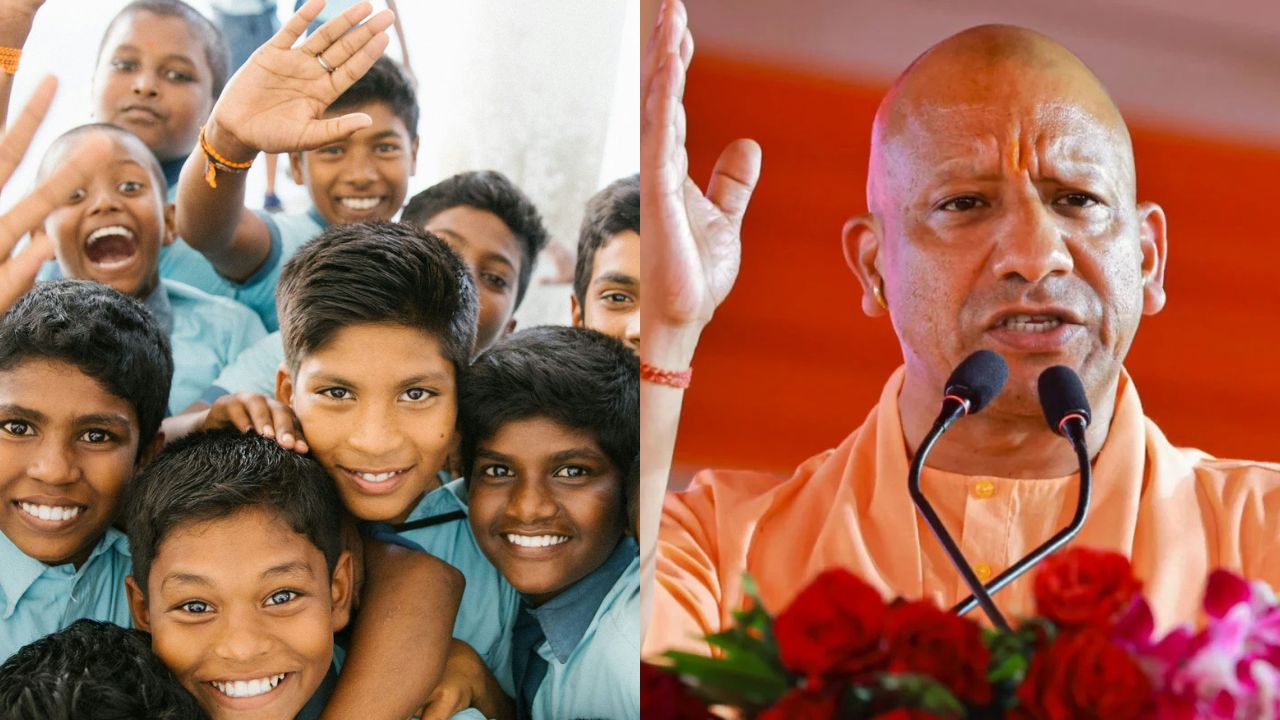 English
English

Uttar Pradesh CM Yogi Adityanath has made singing ‘Vande Mataram’ mandatory in all schools, linking it to national pride. But his fiery remark “no new Jinnahs should rise” has reignited a fierce political row. What sparked this renewed storm over the national song?

Yogi Adityanath makes ‘Vande Mataram’ mandatory in UP schools
Gorakhpur: Chief Minister Yogi Adityanath on Monday announced that the singing of the national song ‘Vande Mataram’ will be made compulsory in every school and educational institution in Uttar Pradesh. The decision, he said, aims to instill a spirit of reverence and pride among citizens toward Bharat Mata and the nation.
Speaking at the ‘Ekta Yatra’ (Unity March) in Gorakhpur, Yogi Adityanath stated, “There should be a sense of respect for the national song Vande Mataram. We will make its singing compulsory in every school and educational institution of Uttar Pradesh.”
According to him, the move is intended to strengthen national unity and reinforce respect for India’s cultural and spiritual heritage.
At the same event, the chief minister urged citizens to remain alert against divisive tendencies. Without naming anyone directly, Yogi Adityanath said, “We must identify those who divide society in the name of caste, region, or language. They are part of a conspiracy to create new Jinnahs.”
He added, “We must ensure no new Jinnah ever arises in India again. We must bury such divisive intent before it can take root.” His remarks sparked sharp political reactions across party lines, especially amid the ongoing debate around ‘Vande Mataram’ and its historical context.
The controversy reignited last week after Prime Minister Narendra Modi alleged that important stanzas of ‘Vande Mataram’ were dropped in 1937 a decision he said sowed the seeds of partition. The Congress, in response, demanded an apology from the prime minister, accusing him of “insulting” the leaders of the 1937 Congress Working Committee (CWC) as well as Nobel laureate Rabindranath Tagore.
Vande Mataram Turns 150: From Patriotic Poem to National Symbol of Indian Freedom
Congress spokesperson Jairam Ramesh cited The Collected Works of Mahatma Gandhi, Volume 66, which documents that the CWC’s statement on Vande Mataram issued in October 1937 was influenced by Tagore’s advice. “The prime minister has insulted this CWC as well as Gurudev Rabindranath Tagore,” Ramesh posted on X.
Composed by Bankim Chandra Chatterji, ‘Vande Mataram’ was first published in the Bangadarshan magazine on November 7, 1875. It was later sung by Rabindranath Tagore at the 1896 Indian National Congress session, becoming a unifying anthem during the freedom movement.
PM Modi recently inaugurated the year-long commemoration marking 150 years of ‘Vande Mataram’, calling it a “symbol of India’s soul and identity.”
No related posts found.